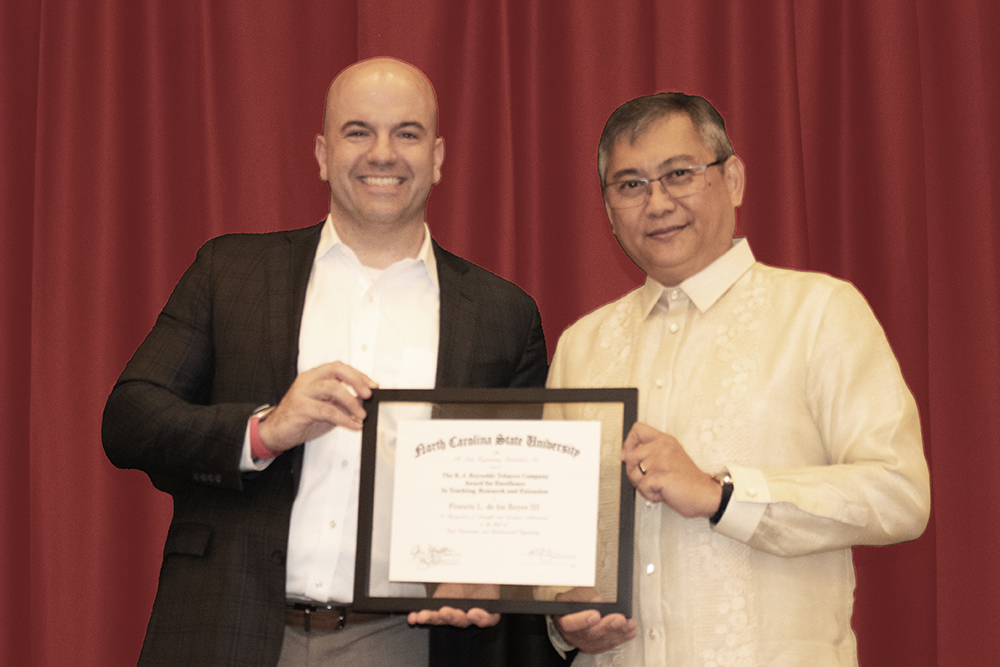ISE associate professor Adolfo Escobedo has been honored with the prestigious CAREER grant for his groundbreaking work in the foundations of mathematical programming, a systematic approach using mathematical models and algorithms for optimal decision-making. Escobedo’s focus on enhancing optimization software reliability holds significant implications for science, engineering and business.
While optimization software has advanced over the past three decades, many commercial solvers need more rigorous numerical guarantees to avoid inconsistent results. Escobedo’s CAREER project targets creating the next generation of optimization solvers with robust numerical guarantees by developing and integrating novel numerical linear algebra subroutines. “We aim to combat roundoff errors, a significant issue in today’s optimization solvers, by creating reliable, open-source tools for academics, practitioners, and the public,” Escobedo explained.
Beyond software advancement, Escobedo is committed to fostering diversity in STEM fields. The CAREER award supports launching a recruitment and research internship program, engaging underrepresented students, developing essential skills, and encouraging interdisciplinary learning communities. “We want to create opportunities for underrepresented minorities, building a more inclusive STEM community,” said Escobedo.
Escobedo’s research focuses on developing theories and algorithms to ensure reliable solutions to real-world linear programming (LP) and mixed-integer programming (MIP) problems. The project addresses the bottlenecks of exact rational arithmetic subroutines in mixed-precision optimization solvers, transforming these inefficient algorithms by integrating integer-preserving matrix factorization algorithms into this state-of-the-art software.
Escobedo’s research aims to establish the next generation of LP and MIP solvers with robust numerical guarantees. By overcoming computational bottlenecks, the research will benefit various applications, such as defense and healthcare, where accurate decisions are crucial. Escobedo emphasized, “It will also benefit emerging applications in science and engineering, where very high numerical precision is needed to solve ‘extreme-scale’ optimization problems.”
“I am extremely honored and ecstatic to receive this award,” Escobedo shared. “This grant represents an incredible opportunity to bridge the gap between theory and practice, bringing attention to the importance of this research at the intersection of operations research and computing.”
Julie Swann, head of the ISE Department, expressed pride in Escobedo’s achievement: “The NSF Career award is one of the most prestigious awards in the country for scientists and researchers. We are so proud that our most recent hire is recognized for his great work and ideas! NC State ISE has a great history of CAREER awards, and we are delighted to add him to our list.”
Swann added, “Adolfo Escobedo is a great hire for ISE and NC State! He was also recently recognized as the Minority Issues Forum Young Investigator of the year from INFORMS. He is an inspiration to students and faculty alike, from loving mathematics in high school in Los Angeles to finding his way to Operations Research and Industrial Engineering. We look forward to his theoretical contributions along with future developments stemming from his other ongoing work in designing large-scale infrastructures for sustainability and developing new social choice-inspired decision-making paradigms.”
Escobedo highlighted the award’s role in designing practical solutions for increasing the entry and retention of STEM students, particularly underrepresented minorities. The educational plan includes an inclusive recruitment and research internship program. “Each year, we plan to recruit at least four undergraduate students, providing resources to expose them to various aspects of graduate school and research,” Escobedo added.
Adolfo Escobedo’s CAREER award recognizes his significant contributions to the foundations of mathematical programming and underscores his commitment to inclusive STEM education, advancing the intersection of operations research and computing.
This post was originally published in the Department of Industrial and Systems Engineering.
- Categories:



